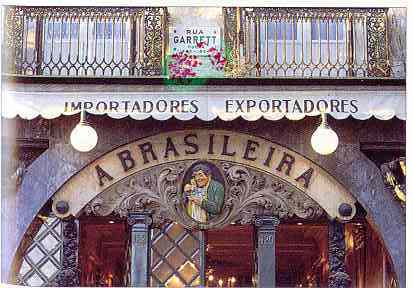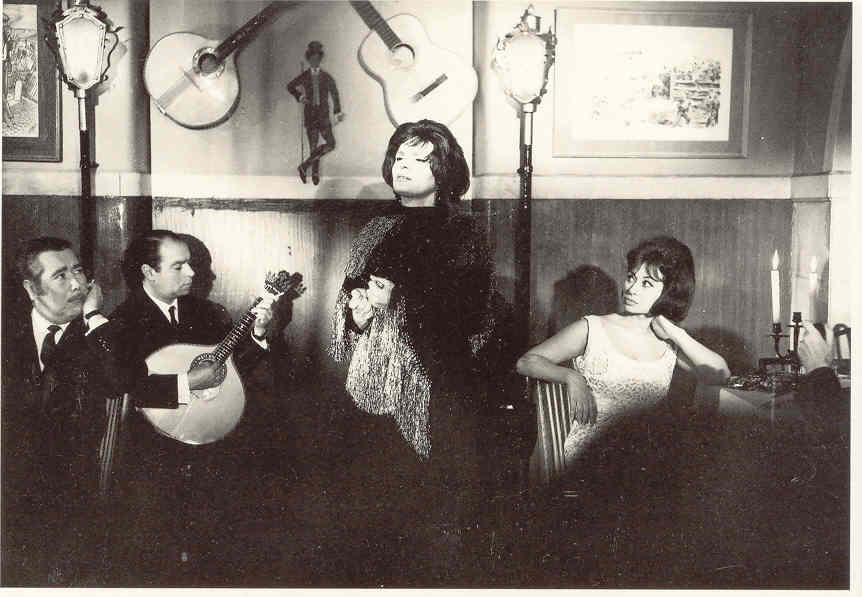|

|
| Café A Brasileira, popular among Lisbon writers from the last century. |
Paul Buck has written Lisbon: A Cultural and Literary Companion,
a wonderful book in the Cities of the Imagination series (Interlink Books; New York 2002). I cannot recommend this book
highly enough as a travel companion. It is rich with references to the worlds of music, art, literature and film.
The evocations of Lisbon neighborhoods alone are richer than those in any guidebook that I have found. (If this
book is typical of this unfolding series, then I recommend them all.) The book includes a wonderful list of resources
for readers with continuing cultural interest in Portugal.
Portugal has two famous poets. The Lisbon poet, Fernando Pessoa lived
in the twentieth century. The words "Lisbon poet" are apt because this was not simply his hometown, but references to
Pessoa still pervade that city long after his death. He resisted invitations to leave the city even for a ferry ride
to the other side of the Tagus River for an afternoon picnic. His works are available in translation, but not every
reader will be able to accept his odd style of "heteronyms;" that is, he attributed his works to different authors, each with
his own style and perspective. He even offered biographical details, as if they each had a life of his own.
Meanwhile, Pessoa himself led the dull life of an office worker in downtown Lisbon, barely forming attachments with other
people. He left behind a large body of poetry, The Book of Disquietude, a journal he worked on for a lifetime
and attributed to his heteronym, Bernardo Soares, as well as other works, including a travel guide to Lisbon that came to
light after his death.
The other famous poet is Luís Vaz de Camões, a larger than life figure.
His portraits are all over Portugal, instantly recognizable because one of his eyes is missing. I find his poetry
to be a wonderful window on the life and perspective of the great adventurers of his time, the kind of people who had
a big impact in history, but seldom leave a written record. Here are some of his poems: Luís de Camões (1524/25) - 1580).
Fado is the great music of Portugal, the dark, wailing music whose origins
are obscure. The most famous practicioner was Amália Rodrigues, and when she died, it was a national holiday.
Her recordings are easily available from Amazon.com. Take one of her CDs along to play while driving through the countryside.
The group Madredeus, which is
active today, offers a haunting fusion of fado tones and traditional instrumentation in a contemporary setting.
The voice of Teresa Salgueiro is angelic.

|
| The great fado singer, Amália Rodrigues, in a postcard of a 1964 photo. |
|

